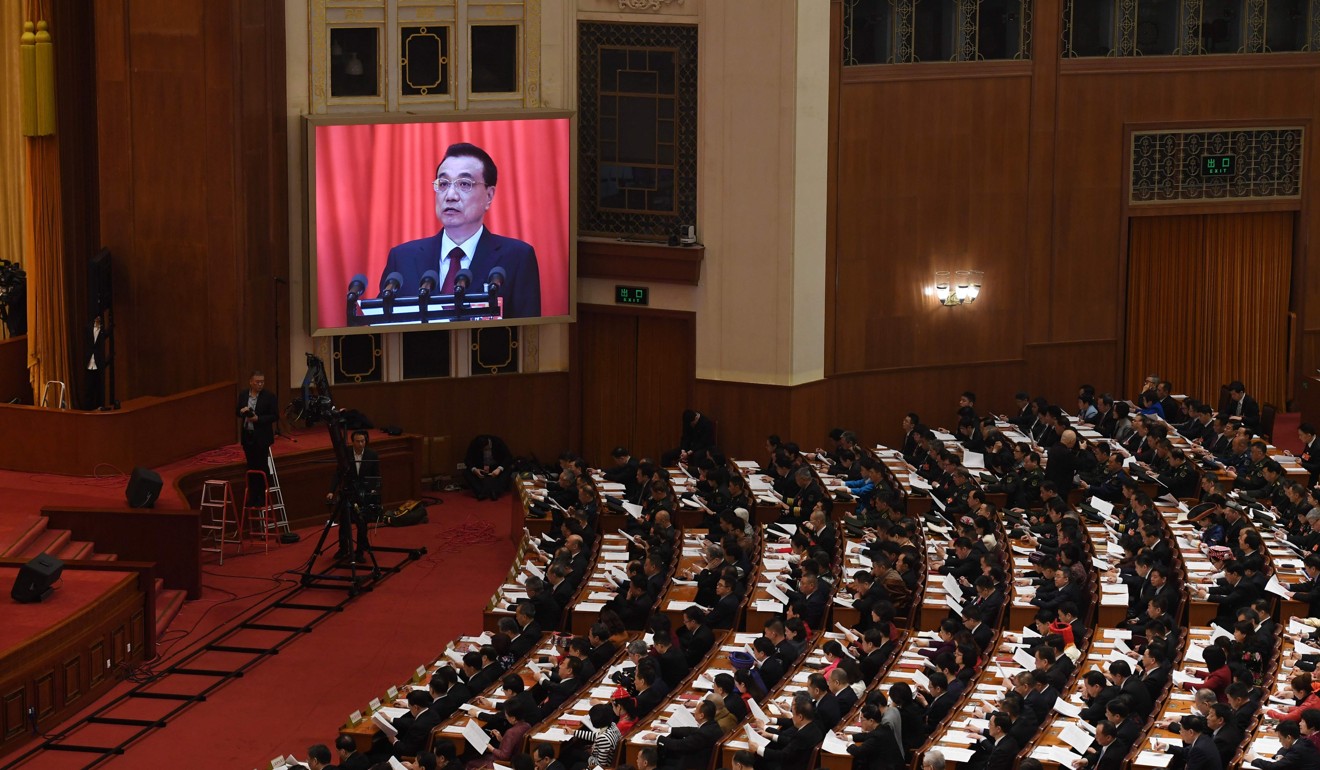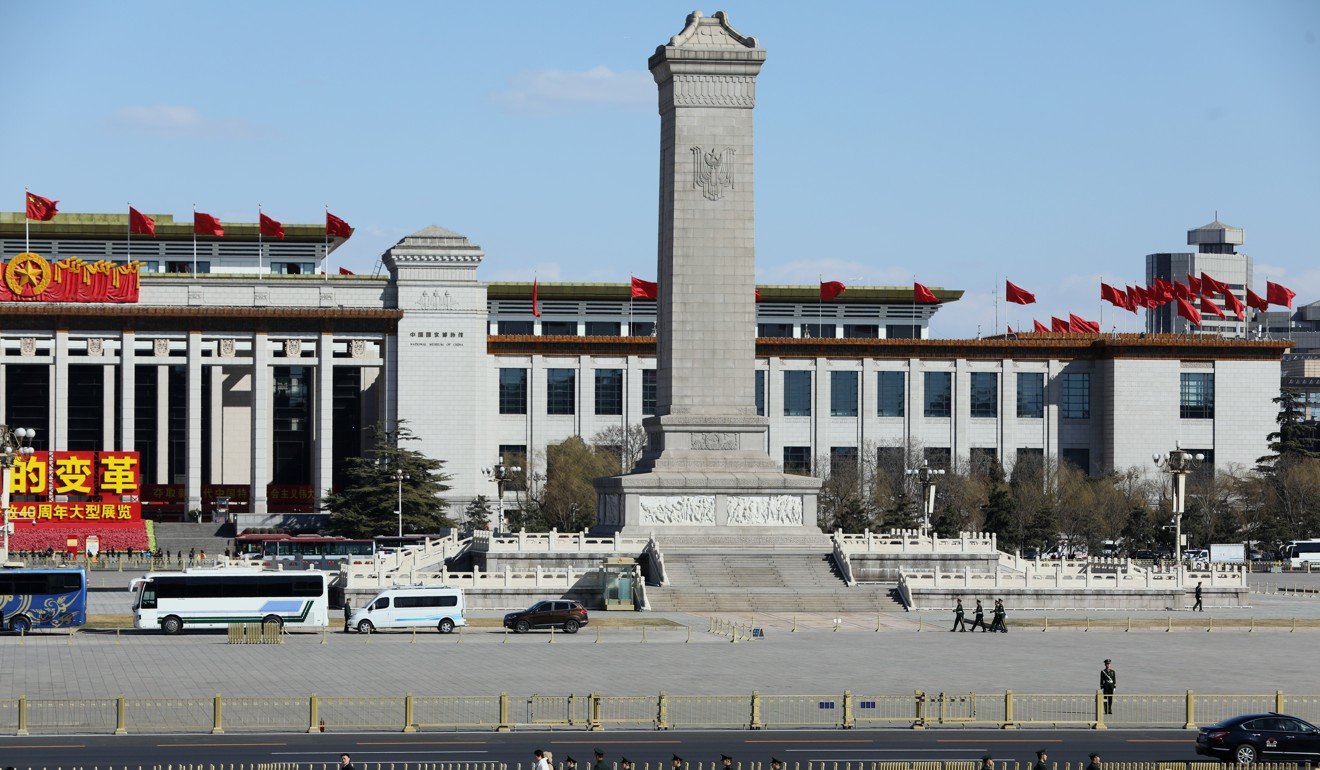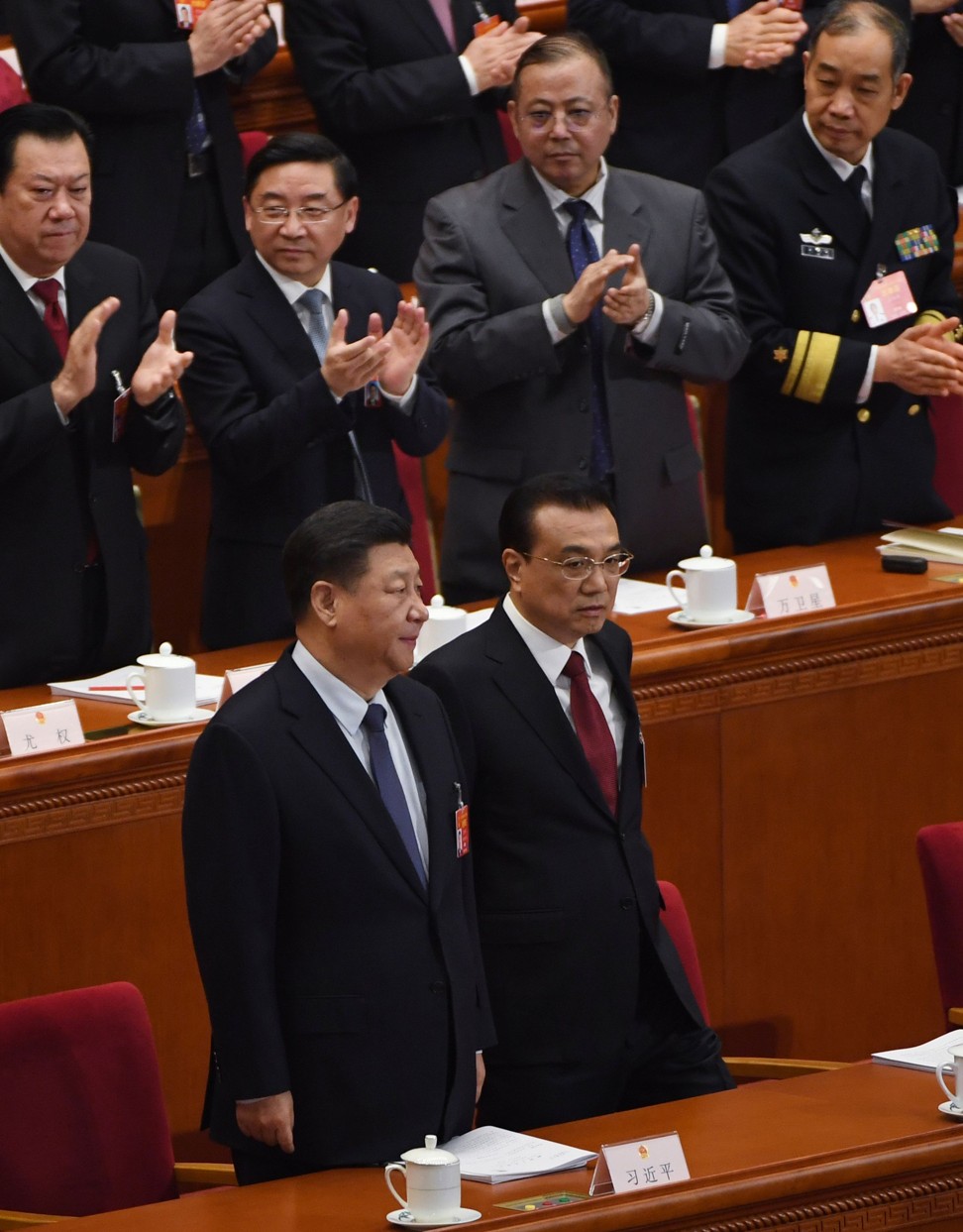
US-China trade war: an elephant in the room for Li Keqiang’s NPC work report
- Li Keqiang’s 100-minute report included US$298 billion in tax and fee cuts to shore up the economy, and a promise to leave more to market forces
- But it also contained plenty of acknowledgement of US pressure, such as not mentioning ‘Made in China 2025’ and sweeteners for private businesses
The report was a long one – it took Li nearly 100 minutes to lay out China’s economic priorities and growth targets for this year, including his promises to cut 2 trillion yuan (US$298 billion) in taxes and fees to shore up the slowing economy.
Senior officials from the Research Office of the State Council, responsible for putting together the report, told official media they worked on last-minute changes all the way until March 5, when Li delivered it.
They would often spar with various government departments over the addition or subtraction of one or two words to be included in the final version.
Huang Shouhong, head of the research office, said over 10,000 people – including 4,000 officials at various levels – were directly involved in the drafting process.
Chinese must live with a dead Baidu, as Google’s return looks doomed
The word “reform” appeared 105 times throughout Li’s report, up from 97 times last year; this was a sign of China’s determination to push ahead with the necessary economic restructuring, Huang said.
In a way, Li and his speechwriting team’s stickling for specific words reflects a noticeable shift towards a pro-market stance at a time when the government’s strong tilt toward state-owned enterprises and forceful measures to strengthen the party’s controls have made private businessmen and foreign investors nervous about the country’s overall investment climate.

Li in his report said the government would do a better job of handling its relations with the market and would rely on reforms to stimulate market vitality.
He said the government must resolutely hand over matters it should not manage to market forces and it should also cut red tape so companies would spend more time doing business than chasing approvals.
As part of the 2 trillion yuan package of tax cuts – which included slashing value-added tax to help the manufacturing sector – Li also announced that big state banks should boost lending to small businesses by 30 per cent, and funds released from future cuts in the reserve requirement ratio for smaller- and medium-sized banks would all go to private businesses.
Huang Xiangmo and Meng Wanzhou today, any other Chinese tomorrow?
Such a package of relief measures, coupled with the government’s pro-market rhetoric, should be welcomed by private businesses. While Li’s report tried to project an air of confidence and optimism, he also readily admitted that China would face more downward pressure on the economy this year from outside forces – which include a slowing international economy, big fluctuations in prices of major commodities, and the rise of protectionism and unilateralism.

He twice briefly mentioned the United States in his report, first blaming the trade friction for its negative implications on some businesses and market expectations, and secondly stating as a matter of fact that China would continue to push ahead with its trade negotiations with Washington.
As US-China trade war talks enter the final stretch, is Beijing ready to tackle its structural issues?
But US pressure can still be inferred by his report’s failure to mention the controversial “Made in China 2025” plan for the first time in three years.
The plan, which outlines the government-led road map to dominate the world’s high-end manufacturing, has come under fire from politicians in the US and its Western allies for perceived massive government subsidies that targeted industries would receive.
As the plan has become one of the major sticking points in trade talks with the US, Chinese officials have started to tone down its significance.
In the report, Li merely said China would try to develop a new group of industries in next-generation information technology; high-end equipment; biomedicine; new energy vehicles; and new materials.
Huang from the research office reportedly put on a brave face by saying the plan was not mentioned in the report because of a lack of space.
In what was perhaps another move to acknowledge US concerns, Li said in the report that the government was committed to deepening reform of state-owned enterprises and “actively” promoting “mixed ownership” reform to encourage private-sector participation in state firms.
From football to stocks, the meddling Chinese government keeps scoring own goals
He singled out the electricity, gas and oil, and railway sectors – which are largely monopolised by state firms – as ripe for being opened up to market competition.
However, Li failed to mention how the government would reduce the various subsidies it provides to state firms, which is another source of tension with the US.
Late last month, Larry Kudlow, a top White House adviser, told American media that the US and China were close to a historic deal for Beijing to cut subsidies to state-owned enterprises, among other things. ■
Wang Xiangwei is the former editor-in-chief of the South China Morning Post. He is now based in Beijing as editorial adviser to the paper


